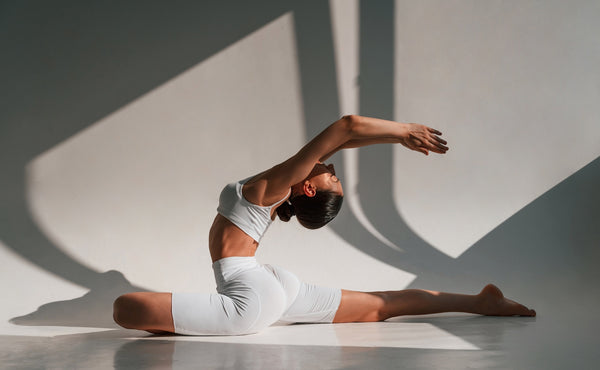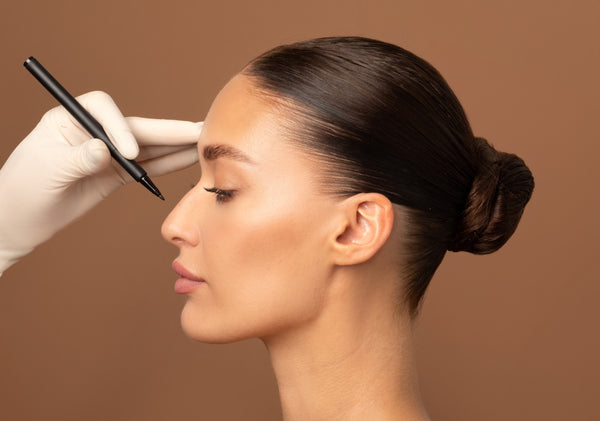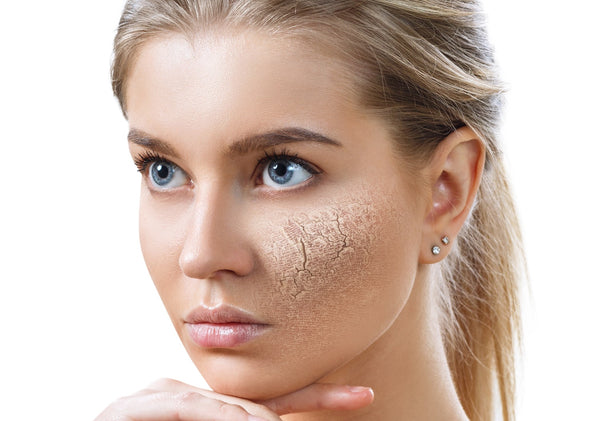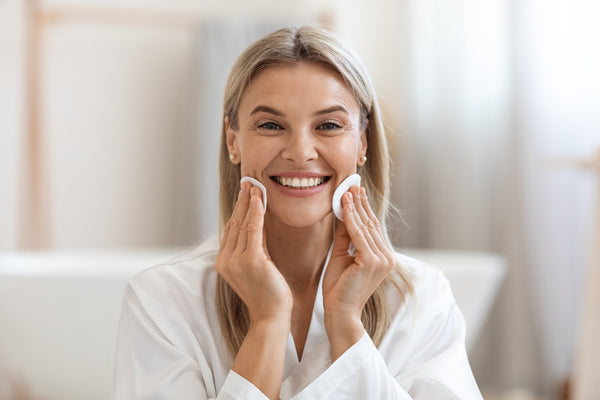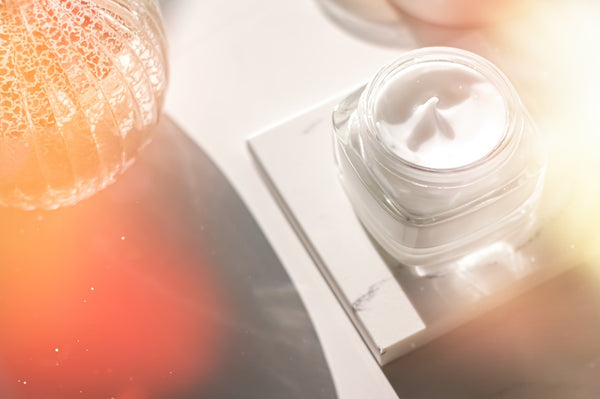Tea vs. Coffee Effects on Skin Health: Which is Better?

Ever stop to wonder how your go-to morning beverage impacts your skin? The link between skincare and diet is real, but when it comes to tea vs. coffee and their effects on skin health — which reigns supreme?
Today, we'll uncover the drawbacks and benefits of tea and coffee for skin, and our verdict on which is best for sipping your way to a happier, healthier complexion.
Tea vs. Coffee’s Effects on Skin Health: What the Science Says
Coffee and tea don’t just perk you up post-snooze — research shows the polyphenols inside them actually improve your skin health and appearance .
Polyphenols are naturally occurring compounds in plants, fruits, veggies, tea, coffee, and cocoa. Scientists study these compounds for their potential health benefits, including anti-inflammatory properties, improving heart health, and preventing certain types of cancer.
 In terms of your complexion, polyphenols are loaded with antioxidants that shield your skin cells from free radical damage, stimulate collagen production, and slow down visible signs of aging.
In terms of your complexion, polyphenols are loaded with antioxidants that shield your skin cells from free radical damage, stimulate collagen production, and slow down visible signs of aging.
In other words, the proof is in the brew.
But before you whip up coffee or tea-based DIY skincare treatments, you should know about the various tea vs. coffee effects on skin health.
Tea: The Good
- Tea contains catechins, a flavonoid polyphenol that protects your skin from oxidative stress and inflammation triggered by free radicals. This prevents the breakdown of collagen and elastin fibers in the skin, which are essential for maintaining firmness, elasticity, and a youthful appearance.
- The catechins in tea also soothe your skin, reducing irritation, redness, and swelling. This is particularly beneficial if you have sensitive skin or struggle with conditions like rosacea or eczema.
- One of those catechins is EGCG (or epigallocatechin gallate), commonly known as ‘green tea extract.’ There’s a reason you see this ingredient in so many anti-aging formulations — it improves skin elasticity, slows down aging, smooths skin texture, and helps your skin retain moisture.
- Other studies suggest that EGCG may prevent skin cancer. It may act as a potent weapon against the effects of UV radiation on the skin, like premature aging and DNA damage.

- All of these compounds work in tandem to support the integrity of your skin’s protective barrier. This helps lock moisture into your skin from the inside out and prevent loss of hydration, which leads to dryness and premature aging.
- Forever fighting breakouts? The right skincare and diet (including tea) might be a solution. Tea, especially green tea, helps prevent acne by reducing inflammation and regulating sebum production. Hello, smoother skin.
- Tea also has less caffeine than coffee (around 25–100 mg). This reduces its diuretic effects, boosting its anti-inflammatory properties that further protect your skin.
Steep on that, coffee.
When looking at the positive effects on skin health of tea vs. coffee, it's also important to consider the limitations.
Here’s what the tea leaves don’t want you to know:
Tea: The Not-So-Good

- Tea contains tannins, which interfere with iron absorption and lead to iron deficiency anemia over time. Not only does this cause fatigue and weakness, but it can also make your skin appear dull, pale, and dry.
- Teas with higher concentrations of tannins (like black tea) can stain your teeth and clothing due to the tannins binding to proteins and causing discoloration.
- Just like with coffee, if you’re sensitive to caffeine, you can experience adverse side effects like jitters, anxiety, or insomnia. And we don’t need to tell you how poor sleep affects your complexion. So if you’re caffeine-sensitive, opt for herbal teas instead.
- On some rare occasions, the plant compounds in tea can trigger allergic reactions.
Not quite compelled to sub your A.M. latte with a steamy green tea?
Let’s continue comparing the tea vs. coffee effects on skin health. Next we’ll break down the complexion perks for those staying loyal to the bean.
Coffee: The Good
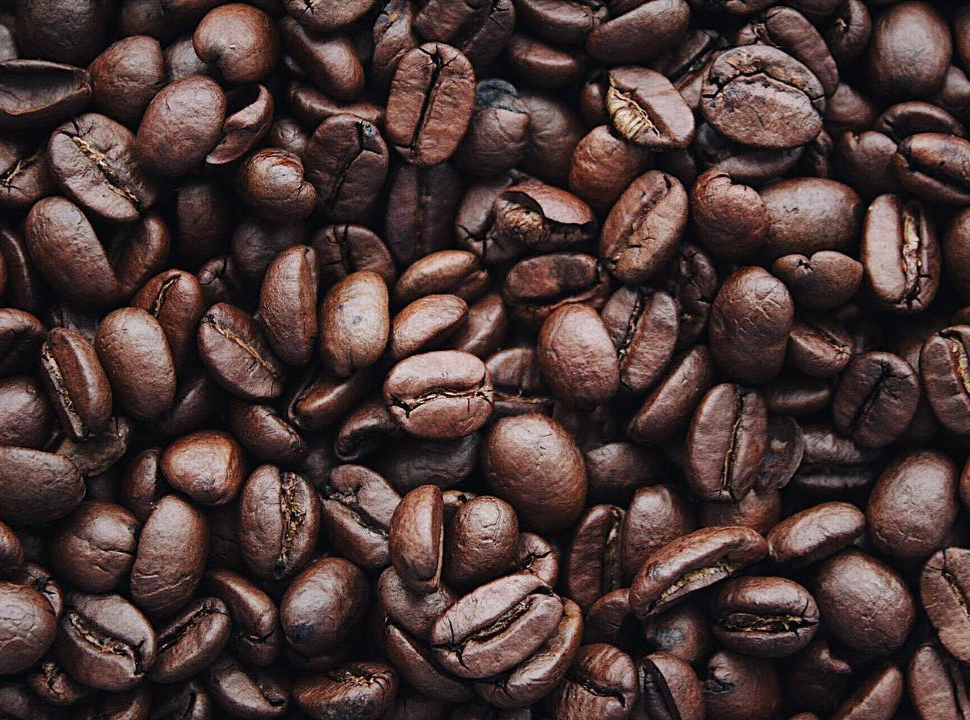
- Similar to tea, coffee is rich in phenolic acids. These antioxidants have powerful anti-aging properties that protect against UV damage, prevent collagen degradation, and diminish fine lines and wrinkles.
- These phenolic acids also have anti-inflammatory properties inhibiting the production of inflammation-inducing cytokines and enzymes. This is particularly helpful if you suffer from acne, psoriasis, eczema, or other inflammatory skin conditions.
- The caffeine in coffee contains beneficial compounds like chlorogenic acid and melanoidins. These compounds boost antioxidant activity, making them more effective at neutralizing free radicals and keeping your complexion safe.
- Craving a healthy glow? Caffeine widens blood vessels to increase blood flow and improve circulation. Good blood circulation not only supports heart health but helps deliver nutrients and oxygen to your skin, keeping pores open and maintaining a fresh and healthy complexion.
- Since coffee also contains more caffeine than tea (about 50 and 200 mg), it also has a much stronger diuretic effect. This helps your body flush toxins, reducing the likelihood of breakouts, acne, and other skin issues.
- Green tea vs. coffee for skincare: which is better? Coffee extract is another trending ingredient for skincare formulations and DIY skincare treatments. Boasting benefits like increasing blood flow, reducing inflammation, diminishing wrinkles, preventing water loss, and slowing down collagen loss — it perks up your skin in the same way that your cup of joe kick starts your mornings.
We’ve looked at the tea vs. coffee effects on skin health that lead to positive results.
On to the coffee cons…
Coffee: The Not-So-Good
- Since coffee has a higher caffeine content than tea, you’re more likely to experience symptoms like restlessness, nervousness, or difficulty sleeping if you’re caffeine-sensitive. This can lead to sleep wrinkles and dull, tired-looking skin. Oy vey.
- While coffee’s diuretic effect is amazing for flushing out toxins, increased urine production can also prompt dehydration. When dehydrated, your skin can become dry, flaky, itchy, and wrinkled due to loss of elasticity.
- Coffee is a hub of antioxidants and anti-inflammatory properties, but too much of a good thing, even coffee, can have the opposite effect. Overdoing it on coffee can result in signs of premature aging, like dull, lifeless, or sagging skin.
- Just like tea, coffee contains tannins. This means that over time, it can stain your teeth. However, because it’s also acidic, coffee can also wear down the enamel of your teeth, leading to even deeper stains.
Espresso vs. Herbal Tea: MD GLAM Weighs In.
In the battle of tea vs. coffee and their effects on skin health — who wins?
In terms of skin benefits, both coffee and tea tout impressive perks along with some manageable downsides. But, ultimately, it comes down to your personal preference.
Whether you’re team tea or coffee, your A.M. pick-me-up is great for upping your glow factor and overall health — just try not to overdo it.
 Our secret to healthy, vibrant skin? The benefits of tea and coffee for the skin only go so far. To maximize results and retain a youthful glow, reach for luxurious, medically-backed skincare.
Our secret to healthy, vibrant skin? The benefits of tea and coffee for the skin only go so far. To maximize results and retain a youthful glow, reach for luxurious, medically-backed skincare.
Ready to brew up a strong batch of confidence? Shop MD GLAM today!

